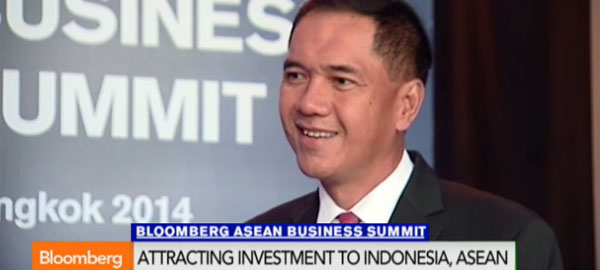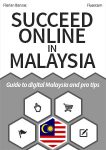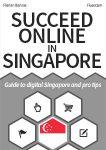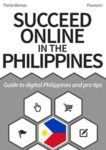The recent election of Joko Widodo as the new President of Indonesia has set in motion a new series of reforms and policies for business, foreign investment and international relations. Gita Wirjawan, former trade minister of Indonesia, presents his views on the economy of Indonesia and perspectives for the coming years.
Interviewed by Haslinda Amin on the margin of the Bloomberg ASEAN Business Summit 2014, Gita Wirjawan shares his take on the policies implemented by the new Indonesian government of Joko Widodo, “Jokowi”. Though he expresses a few reserves, the former trade minister highlights positive reforms and measures, together with bright perspectives for the future.
Key economic reforms and perspective for Indonesia from Gita Wirjawan
On the reforms launched:
- The cut in oil subsidies is a very good move to help the fiscal policy. It also comes at a very good time as global oil prices are falling.
- External global and regional forces will be putting some pressure on the current account in the near foreseeable future.
- Though the 7% growth target set by Joko Widodo is probably not going to be realized for 2015, the current trend of reforms should bring positive results, and certainly do show steps in the right direction.
On foreign investments:
- Haslinda Amin notices a political move of protectionism in certain industries, despite the general opening of the economy, which could signal signs of nationalism. Though he agrees, Gita Wirjawan tampers this view remarking that nationalist aspirations are also very perceptible in a number of other ASEAN countries.
- The important sectors are however open to foreign investments. Attracting capital from anywhere remain nevertheless a major objective, provided it is used to move up the value chain, and for the longer term.
- 2.5 to 3 million jobs a year will need to be created in order to achieve the 6-7% economic growth targets. To reach that goal, Indonesia must move up the value chain.
- The administration will make sure the investments are directed towards infrastructures to improve the business and investment environment.
On the opposition to Joko Widodo:
- The political opposition to Jokowi could bring some risks to his reforms, but he is very popular in Indonesia. So if he keeps on doing reforms for the people, they should weigh in and enable him to move forward.
On the AEC integration and competition in ASEAN:
- All countries of ASEAN are exposed to competition from the others.
- Indonesia is in particular exposed to competition in the sector of service, for which some ASEAN members are stronger. But it is also an opportunity for learning from them.
- With regards to its weight in the ASEAN economy and population, Indonesia has the biggest population, with 250 million people (about 45% of the ASEAN population), and it remains the largest economy with a GDP of about 1 Trillion USD (about 45% of total ASEAN GDP).
- Indonesia is where the largest part of ASEAN market is, it should therefore also be able to attract investments from businesses to satisfy them more easily and reduce transport costs.
Bloomberg video from December 2014



![Indonesia's economy overview [reports] Indonesia's economy overview](https://aseanup.com/wp-content/uploads/2015/05/Indonesia-economy-150x68.jpg)





